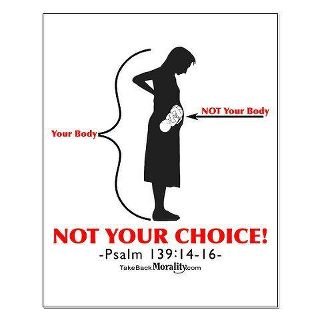Why Karl Marx Supported Gun Rights—but Marxists Don’t
For just $10.77, people can go on Amazon and buy wall art of Ronald Reagan apparently defending the Second Amendment.
“Under no pretext should arms and ammunition be surrendered,” the text reads next to a picture of Reagan; “any attempts to disarm the people must be stopped, by force if necessary.”
There are a few problems with the quote, but the biggest one is that Reagan never said it.
As numerous fact checkers have noted—including Reuters, Snopes, Factcheck.org, and Politifact—the author of the quote is none other than Karl Marx, the German philosopher and author of The Communist Manifesto who used language nearly verbatim to this in an 1850 address in London.
“Under no pretext should arms and ammunition be surrendered; any attempt to disarm the workers must be frustrated, by force if necessary,” Marx said in his “Address of the Central Committee to the Communist League.”
Marxists Not Embracing Marx’s Messaging?
In fairness to the many internet users duped by the fake Reagan meme, the quote sounds a bit like something Reagan could have said (though it’s highly unlikely the Gipper, a skilled and careful orator, would have ever said “by force if necessary”).
Reagan, after all, generally—though not universally—supported gun rights and was skeptical of efforts to restrict firearms.
“You won’t get gun control by disarming law-abiding citizens,” Reagan famously noted in a 1983 speech.
Some might be surprised that Marx and Reagan had similar views on gun control. Marx was of course the father of communism, whereas Reagan was famously anti-communist. Moreover, Marx’s modern disciples are staunch supporters of gun control, whether they identify as socialists or progressives.
“Guns in the United States pose a real threat to public health and safety and disproportionately impact communities of color,” Nivedita Majumdar, an associate professor of English at John Jay College, wrote in the Marxist magazine Jacobin. “Their preponderance only serves corporate interests, a corrupt political establishment, and an alienated capitalist culture.”
This distaste for guns goes beyond socialist magazines. As The Atlantic reported during the last presidential election cycle, progressive politicians are increasingly embracing more stringent federal gun control laws.
“No longer are primary candidates merely calling for tighter background checks and a ban on assault weapons,” journalist Russell Berman wrote in 2020; “in 2019, contenders like Senator Cory Booker of New Jersey and Representative Beto O’Rourke of Texas were calling for national licensing requirements and gun-buyback programs.”
The point here is not to disparage politicians like O’Rourke and Booker as “Marxists,” a label they’d almost certainly object to. The point is that progressive politicians like Rep. Alexandria Ocasio-Cortez (D-NY) might channel Marx in their class rhetoric, but they are not embracing his messaging when it comes to the proletariat’s access to firearms.
As it happens, this is a common theme with Marxists throughout history.
Why Marxists Don’t Support Gun Rights
Some may find it odd that Marxists don’t support gun rights when Marx himself did, but there’s an explanation as to why, and it stems in part from Marx’s conception of rights.
Classical liberals of the American founding saw human rights as inviolable because because they are natural rights “endowed by their Creator.” As Thomas Jefferson explained in an 1824 letter, rights—including the right to bear arms—are “inherent in the people,” which makes them inalienable.
Unlike the American Founders (and Reagan for that matter), Marx didn’t see the right to bear arms as a natural, individual right. In fact, Marx didn’t believe in individual rights at all. Instead, Marx saw firearms as a means to an end, and the end was revolution.
“The whole proletariat must be armed at once with muskets, rifles, cannon and ammunition,” he explained, “and the revival of the old-style citizens’ militia, directed against the workers, must be opposed.”
Marx continued:
“Where the workers are employed by the state, they must arm and organize themselves into special corps with elected leaders, or as a part of the proletarian guard. Under no pretext should arms and ammunition be surrendered; any attempt to disarm the workers must be frustrated, by force if necessary. The destruction of the bourgeois democrats’ influence over the workers, and the enforcement of conditions which will compromise the rule of bourgeois democracy, which is for the moment inevitable, and make it as difficult as possible – these are the main points which the proletariat and therefore the League must keep in mind during and after the approaching uprising.”
We see here that Marx supported the right of workers to bear arms not because of some inalienable right, but because firearms were necessary tools in his revolution against the despised bourgeoisie.
We can surmise from this that Marx likely would have supported the peoples’ right to bear arms—right up until the point it no longer served his revolutionary purpose, at which point his support for gun rights would be jettisoned. And this is precisely what Marx’s followers did.
In his essay Letters from Afar, the infamous Bolshevik leader Vladimir Lenin called for an armed proletariat militia, writing that organizers should “arm all the poor, exploited sections of the population in order that they themselves should take the organs of state power directly into their own hands.”
Once Lenin achieved power, however, he immediately turned to a proven method of oppression: gun confiscation. On Decc 10, 1918, less than six months after the Bolsheviks butchered Tsar Nicholas II and his family at a house in Yekaterinburg, Soviet citizens were ordered by the Council of People’s Commissar to turn their firearms over to the state.
The penalty for refusal was ten years in prison.
Lenin was hardly an outlier. Marxists who followed in his footsteps, including Mao in China and Castro in Cuba, also turned to gun confiscation shortly after gaining power.
Marx was not wrong that firearms were the path to power, but his followers came to realize an obvious truth: firearms were also a threat to their own power.
“Political power,” Mao famously observed, “grows out of the barrel of a gun.”
Mao, in a twisted way, was right. An armed citizenry was a double-edged sword. While it served the masses as a bulwark against political oppression, it also threatened the vehicle socialists used to usher in the people’s utopia: the state. And this explains why modern Marxists tend to despise gun rights.
“There’s a reason you never see a Communist, a Marxist, or even a Socialist politician support the right of common people to keep and bear arms,” US Rep. Thomas Massie (R-KY) recently said. “Those forms of government require more submission to the state than armed citizens would tolerate.”
There’s a reason you never see a Communist, a Marxist, or even a Socialist politician support the right of common people to keep and bear arms:
Those forms of government require more submission to the state than armed citizens would tolerate.
— Thomas Massie (@RepThomasMassie) July 30, 2022
Massie is not wrong, and it helps explain why so many Marxists part ways with Marx on gun rights.
It’s also an important reminder that rights are not really rights at all if they can be discarded once they have served the ends one seeks.
Content syndicated from Fee.org (FEE) under Creative Commons license.
Agree/Disagree with the author(s)? Let them know in the comments below and be heard by 10’s of thousands of CDN readers each day!




